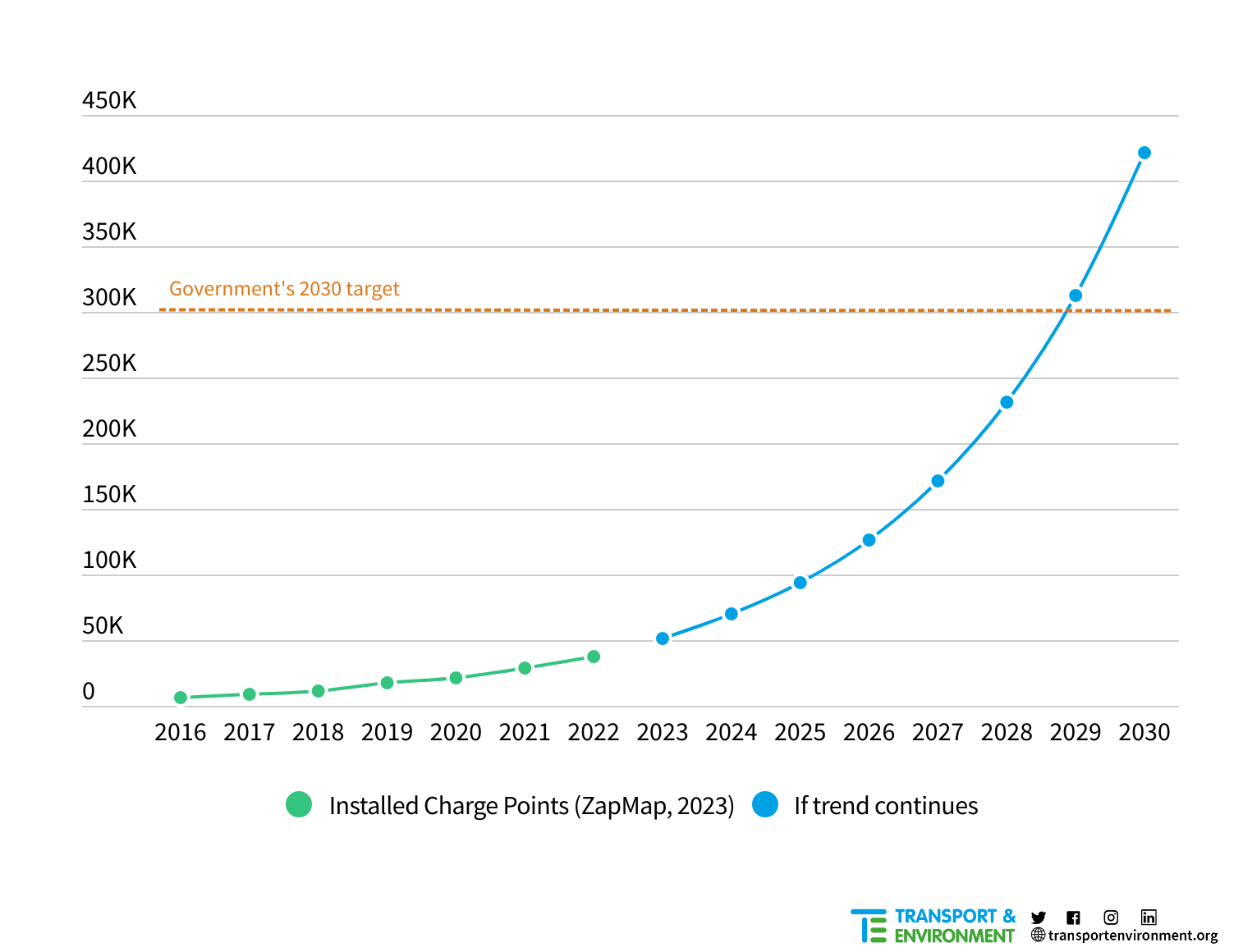The “dither and delay” manoeuvres of the UK government concerning the zero emissions car and van mandate could risk billions of pounds worth of private investment going into the UK charging network which could endanger the whole decarbonisation of transport, Europe’s leading clean transport NGO, Transport & Environment, has said.
Currently the UK charging infrastructure is on track to deliver the government’s targets of 300,000 chargers by 2030, with a year-on-year growth rate of 35% on average over the past three years. If any watering down of the ZEV mandate were to happen, as rumoured, £6bn worth investment would be put at risk. If the ZEV mandate was watered down to make 2024 non-binding for the industry, this would result in 3.8Mt more CO2 being released into the atmosphere – roughly 3% of UK transport emissions in 2022.
UK charging point installation growth is on track to meet government targets

Source: ZapMap, ‘EV Charging Statistics 2023’
Besides the charging network, T&E, have also outlined that UK battery production could also be at risk. Recently the government and Tata announced a new battery gigafactory will be constructed in Somerset which would create up to 4,000 highly-skilled jobs but if the UK backs away from an ambitious electric vehicle strategy, further investments in the battery value chain or jobs may not materialise.
T&E analysis, updating previous research on European battery investment, suggests that at least 100 GWh is at risk, or 70% of the announced battery investments in the UK. These will put the UK at the mercy of global volatile markets to secure the components and metals for its green transition, losing out on jobs and business value.
The government’s own research has shown that the faster the ZEV mandate accelerates the transition to electric vehicles the higher the cost benefits.
The government is subsidising the Tata gigafactory with estimates suggesting this is worth £500m but any uncertainty around the UK’s transition to EVs will spook investors meaning the government will likely have to stump up more subsidies at a time when there is severe pressure on public finances. T&E warns that the UK is sacrificing its long-term industrial and decarbonisation strategy to appease a few climate sceptic MPs and parts of the media that are hostile to the transition.
Richard Hebditch, UK director of Transport & Environment, said:
“It’s frankly ludicrous that some in government are even considering watering down the zero emissions car and van mandate. The mandate is designed to aid the industry to smoothly transition to electric vehicles at every stage of the process – manufacturing, charging infrastructure, battery production.
The biggest threat to planned investment comes from “dither and delay”, undermining trust and confidence in the UK from those considering investing in the battery supply chain and charging infrastructure. Prime Minister Sunak needs to send a clear and strong message to investors, and his own party by celebrating a success story with investments to support UK jobs that can deliver reductions in emissions – not undermining the very policies that create that success.”
ENDS
Notes to editors
If you have any questions or would like to speak to Richard Hebditch please email alexander.killeen@transportenvironment.org or call 07806431577.


